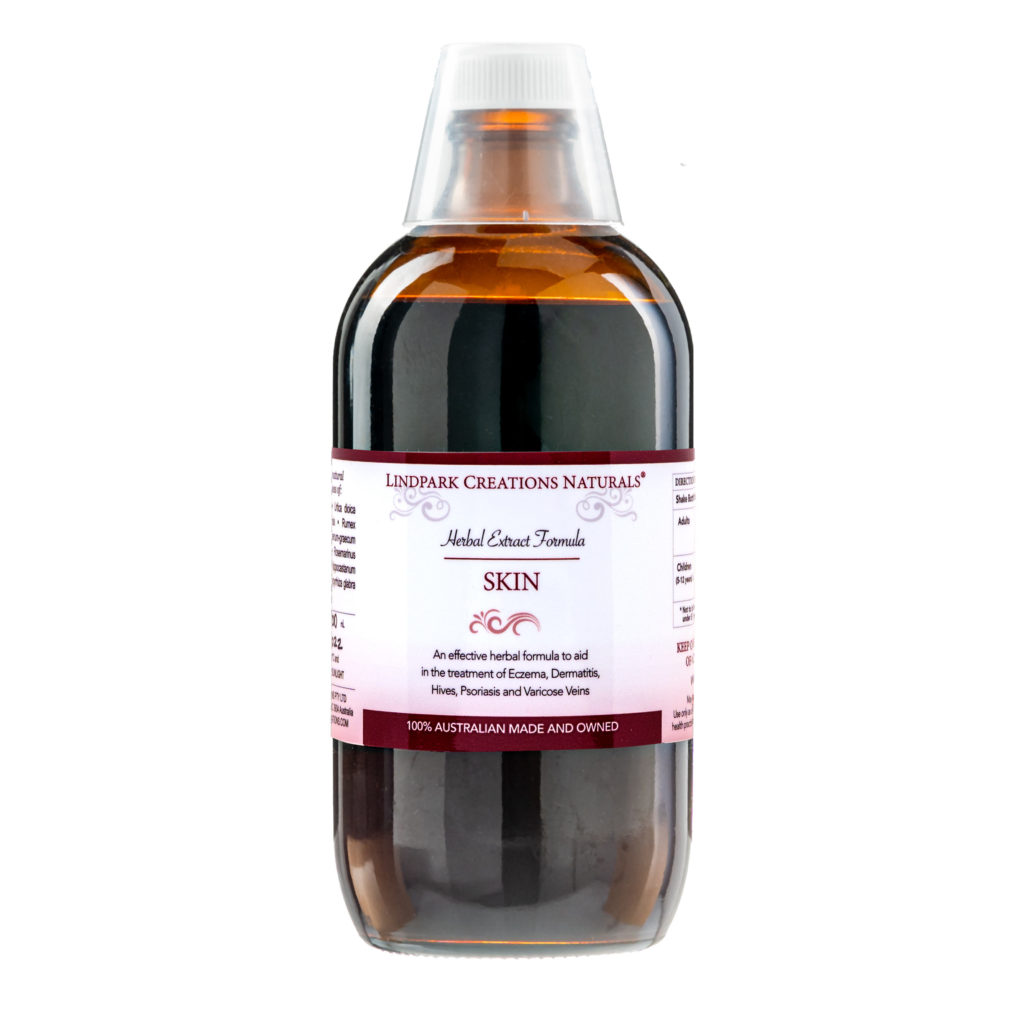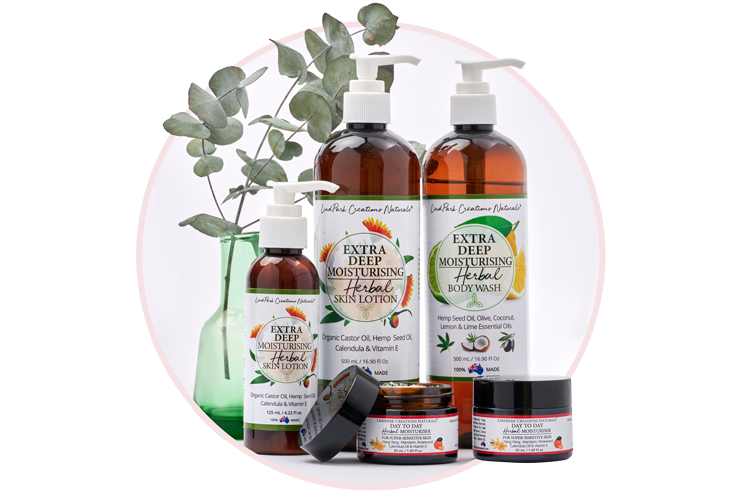Nothing gets under your skin quite like the relentless irritation of eczema.
With it’s hallmark feature of itchy and inflamed red patches, this common condition often flares in response to otherwise harmless triggers, such as stressful thoughts, food proteins, animal dander and environmental allergens like pollens. Your skin may even react to a rise in body temperature (e.g. from exercise).
What you may not know is that eczema is more than just skin-deep; often, it’s a sign of an imbalance at a deeper level, reflecting an overactive immune system, toxicity and poor gut health.
Let’s explore how your immune system and gut affect your symptoms.
Healthy Skin Begins Within
Normally, immune cells are responsible for producing redness, heat and swelling (inflammation), as a way of protecting you. For example, inflammation in response to an infectious threat (such as bacteria) or an injury (such as bruised soft tissue) helps to defend your body and allow it to heal.
However, in eczema, your immune system is highly sensitive and over-reactive to even the slightest environmental exposures (pollens, animal dander) or skin changes (such as those in exercise-induced dermatitis). In response to these triggers, it sends inflammatory signals to the surface of your skin, causing an itchy, inflamed red patch.
This causes you to scratch, breaking down the skin barrier (the outer layer of your skin) and allowing germs and allergens to get inside; this triggers even more inflammation and itching, and sets up a vicious, ‘itch-scratch’ cycle.
What causes your immune system to be over-reactive in the first place? This leads us to an important connection that is often left unaddressed in eczema: the link between your immune system and your gut.

Your gut and immune system are inextricably linked, as it contains 70% of your immune system. Your gut bacteria communicates with your immune cells, influencing how intensely they respond to eczema triggers. This means that any disturbance in your gut health can affect the way your immune system functions.
In fact, research shows that losses of beneficial bacteria in your gut microbiome (due to antibiotics), or infections such as Bali Beli) can contribute to eczema in both children1 and adults.2 This is why improving your levels of good gut bacteria can help ease your eczema, as they tone down your immune system’s reactivity, reducing the inflammation that causes your symptoms.
Your gut bacteria communicates with your immune cells, influencing how intensely they respond to eczema triggers.
Give Your Gut Bugs Some Extra Support
Specific probiotic strains (types) can improve the levels of beneficial bacteria in your gut microbiome, and this can help regulate hyper-reactive immune cells. In fact, two strains in particular have been shown to coax the immune system into being less reactive, helping to reduce allergic symptoms.3,4 Both Lactobacillus paracasei (LP-33®) and Lactobacillus rhamnosus (LGG®) work to balance an overactive immune response when taken orally.5,6 This means that the combination of LP-33® and LGG® can dial down excess inflammation, reducing your eczema flare-ups.
It is important to note that, in order to get the results you’re looking for, you must take probiotic strains that have scientific evidence showing that they work in allergic conditions. For this reason, I recommend either of the following 2 Practitioner-Only probiotics:
Ultra Flora Immune Enhance (Vegetable capsules) or Biome Eczema Probiotic (Fridge Free Sachets).
Keep your Immune Cells from Going Overboard
In addition to probiotics, other natural ingredients can help dial down an over-enthusiastic immune response. These include nutrients that support normal immune system activity and strengthen the lining of your digestive tract, such as vitamin A, zinc, vitamin D and glutamine.
Taking vitamin A, zinc and glutamine provides nutritional support for your gut lining, which is where your gut bacteria make their home; in a nutshell, a healthier gut lining promotes a better balance of gut bacteria. Zinc, vitamin A and vitamin D are all essential nutrients for the healthy function of your immune system, and are also essential for skin repair. Vitamin D in particular is anti-inflammatory, and may regulate your immune system.7
In addition, my herbal tincture “SKIN” containing botanical extracts that balance an overactive immune system and reduce allergic symptoms may help with eczema. This includes Baical skullcap, Milk thistle, Rehmannia, Nettle, Yellow dock, Fenugreek, Red clover, Thyme, Peppermint (and a few more). These extracts all work to reduce the production of the immune system’s inflammatory signals, reducing the redness and itchiness of eczema.

Finally, Topical Solutions are Just as Important in Treating Eczema
Always us a completely hydrating Body Wash and Lotion:

References
1 Zhang Y, Jin S, Wang J, Zhang L, Mu Y, Huang K, et al. Variations in early gut microbiome are associated with childhood eczema. FEMS Microbiol Lett. 2019 May 1;366(9). pii: fnz020. doi: 10.1093/femsle/fnz020.
2 Hua X, Goedert JJ, Pu A, Yu G, Shi J. Allergy associations with the adultfecal microbiota: Analysis of the American Gut Project. EBioMedicine. 2015 Nov 27;3:172-179. doi: 10.1016/j.ebiom.2015.11.038.
3 Schultz M, Linde HJ, Lehn N, Zimmermann K, Grossmann J, Falk W, et al. Immunomodulatory consequences of oral administration of Lactobacillus rhamnosus strain GG in healthy volunteers. Journal of Dairy Research. 2003;70:165-173.
4 Peng G-C, Hsu C-H. The efficacy and safety of heat-killed Lactobacillus paracasei for treatment of perennial allergic rhinitis induced by house-dust mite. Pediatr Allergy Immuno. 2005;16:433-438.
5 Schultz M, Linde HJ, Lehn N, Zimmermann K, Grossmann J, Falk W, et al. Immunomodulatory consequences of oral administration of Lactobacillus rhamnosus strain GG in healthy volunteers. Journal of Dairy Research. 2003;70:165-173.
6 Peng G-C, Hsu C-H. The efficacy and safety of heat-killed Lactobacillus paracasei for treatment of perennial allergic rhinitis induced by house-dust mite. Pediatr Allergy Immuno. 2005;16:433-438.
7 Palmer DJ. Vitamin D and the development of atopic eczema. J Clin Med. 2015 May;4(5):1036-50.

